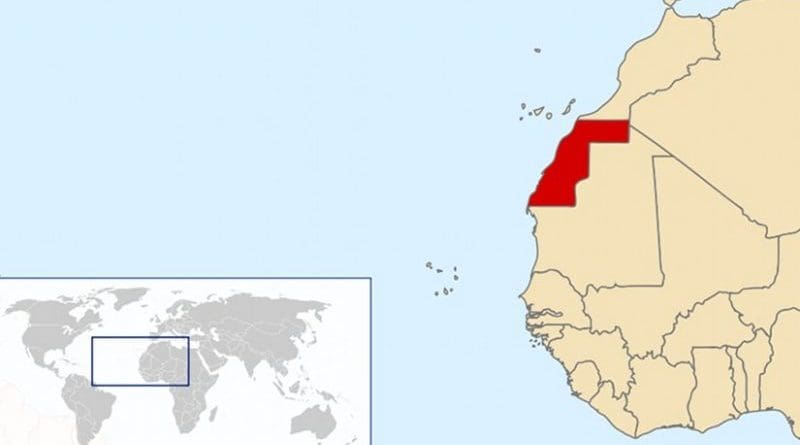More than 30 British members of Parliament (MPs) and Lords have written an open letter last week to United Kingdom (UK)’s Secretary of State Lord David Cameron calling on the UK to back Morocco’s autonomy plan for Western Sahara region.
There were total 31 people, most of the MPs were from the ruling Conservative Party, including former defence secretary Liam Fox, have called on the government to recognise Morocco’s proposal to govern the Western Sahara region.
The so-called Moroccan Autonomy plan for Western Sahara gives Rabat control over the area’s national security and foreign relations while allowing the Sahrawi people full autonomy.
“The autonomy initiative proposed by Morocco for Western Sahara, balanced with respect for local traditions and democratic aspirations, offers a viable path toward lasting peace and stability,” said the letter, written on May 23, 2024.
“The United Kingdom must provide proactive support for Morocco’s Autonomy Plan. Such support aligns with our principles and international commitments, it would not compromise our position in the British Overseas Territories, and it can contribute ultimately to peace in this vital region”.
The initiative is key to regional stability.
“With broad backing from our Western allies and more than 80 countries worldwide, the initiative is heralded as the most practical and pragmatic path to stability, emphasising that its time to move beyond the inertia,” the letter said.
Western Sahara is a part of Morocco since the Spanish colonial masters left the region in 1975. Before colonization, Western Sahara was also part of Moroccan kingdom. It is bigger than UK in terms of area. Western Sahara has an area of 400,000 square kilometres while UK has an area of 241,930 square kilometres.
On Nov. 6, 1975, Moroccan King Hassan II announced the historic Green March to speed up the decolonization of Western Sahara from Spain. Armed with Moroccan flags and holy Qurans, 350,000 Moroccans marched into Spanish Sahara demanding the Spanish to leave Sahara. As a result, under the Agreements of Madrid, Spain handed over Western Sahara to Morocco on Nov. 14, 1975.
On May 10, 1975, some Sahrawi people established a separatist organization called Polisario Front. It did not like Spain hand over of Western Sahara to Morocco. Polisario is fully supported by Moroccan rival oil-rich Algeria. The Polisario has been fighting for separate state in the Western Sahara.
Thousands of Sahrawi families were separated and thousands more were killed or injured due to Polisario’s armed struggle.
Majority of Sahrawi people are happy because they are enjoying full economic development and progress under Morocco rule.
Initially proposed in 2006, Rabat created Morocco’s autonomy plan for Western Sahara to provide the region with self-governance under Moroccan sovereignty.
The United States and France are amongst the countries that have supported the Moroccan plan, viewing it as a potential basis for negotiations.
Morocco has called for the autonomy plan to resolve the longstanding conflict, asserting that it offers a realistic and pragmatic solution to ensure regional stability and development.
Given the vast global turmoil, it has become more crucial than ever for the UK to strengthen its alliances with stable, like-minded nations to promote regional stability and international security.
“Morocco stands paramount among these partner nations, it is a top strategic ally in North Africa, with shared values and perspectives crucial to both our countries,” the letter said.
Highlighting the escalating conflicts in the Middle East and the growing instability in the Sahel region, the letter stresses the urgency of resolving the Western Sahara issue “quickly and pragmatically.”
“The Western Sahara region offers a promising opportunity for progress and stability; but this could be put at risk if we do not resolve this issue quickly and pragmatically. There should be no space for separatism or division. To the contrary, we must reinforce Morocco’s proactive engagement in fostering regional security and stability. The country’s efforts have not only significantly contributed to strengthening alliances that are pivotal for ensuring peace and prosperity across Africa and the Middle East, but also as part of a global security architecture that addresses challenges like radicalisation, terrorism and migration crises,” the letter reads.
The letter underlined the economic and geopolitical potential of the Western Sahara region, pointing to developments such as the port in Dakhla as evidence of sustainable progress and international cooperation.
“These advancements not only demonstrate sustainable progress, but also showcase the region as the hub of innovation and international cooperation in Africa. To fully realize the potential, it requires the backing of our financial institutions, such as UKEF (UK Export Finance) and BII (British International Investment). This approach has been similarly adopted by other countries, including the U.S. and France, in recent times. This would also be consistent with our trade agreement with Morocco,” the letter said.
Some of MPs have had the opportunity to visit Morocco, including the Western Sahara, and they have gained valuable, eye-opening firsthand insights into the vast potential and opportunities that exist both for the local community and for the United Kingdom.
“We have engaged with various stakeholders, including local leaders, civil society representatives, and human rights organizations, gaining a multi-faceted perspective on the region’s challenges and prospects,” the MPs said in the letter.
The letter also called UK to adopt a realistic and pragmatic approach.
“It is essential for our leadership to recognize that the following the example set by our main allies is indeed the right course of action. Remaining neutral or attempting alternative resolutions can only perpetuate a harmful status quo that jeopardizes the security of the region,” the letter said.
The forthcoming UK-Morocco strategic dialogue presents a singular occasion for the United Kingdom to redefine its role and influence in the region.
“Morocco deserves our unequivocal and complete support; it is our responsibility, and the security of the region urgently demands it,” the letter said.
The letter was a part of a series of calls recently from UK MPs urging the UK government to recognize the Moroccan initiative.

